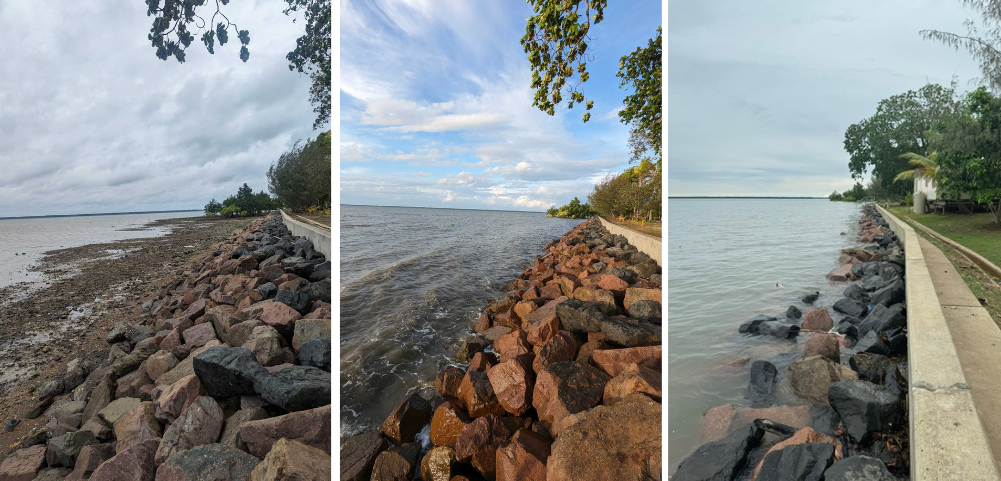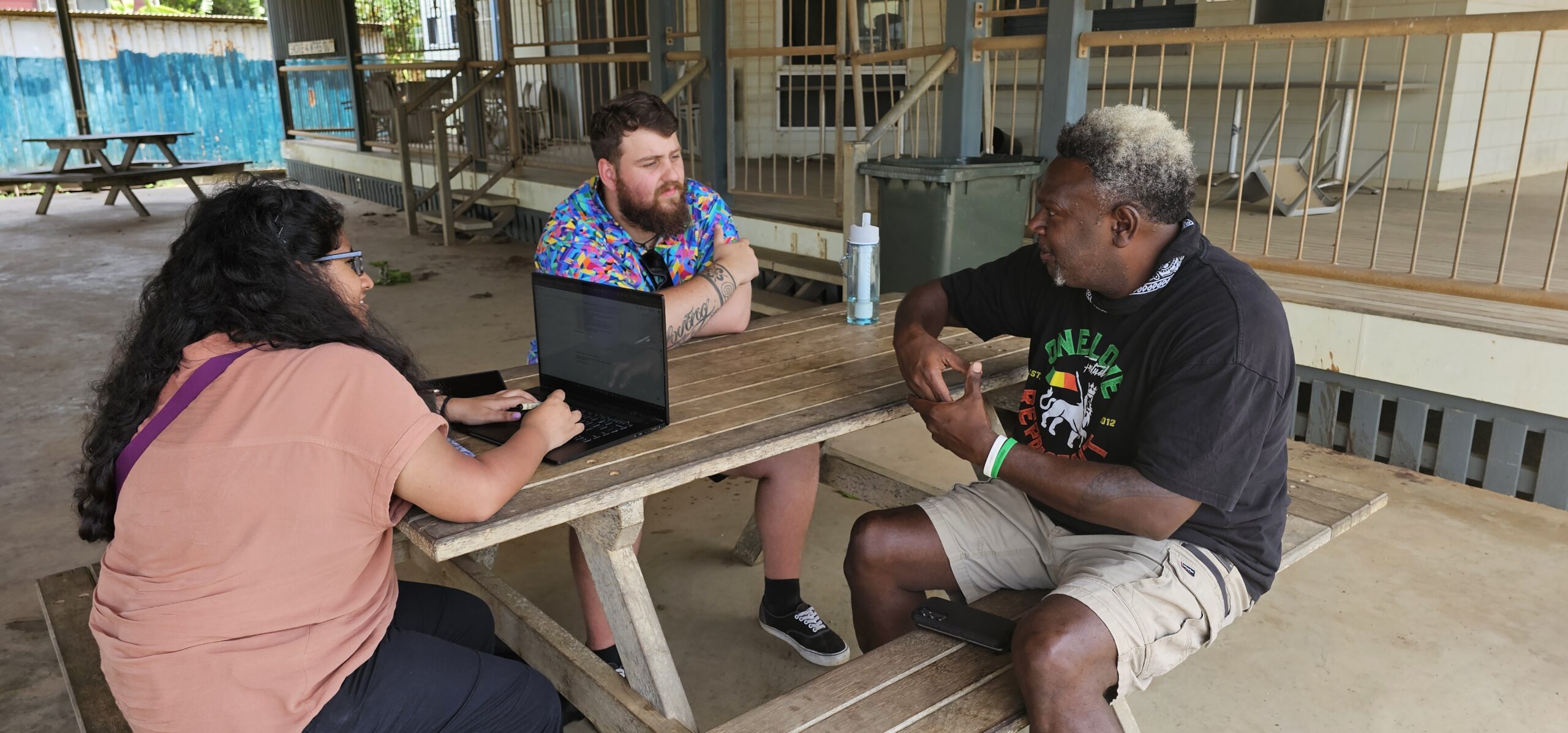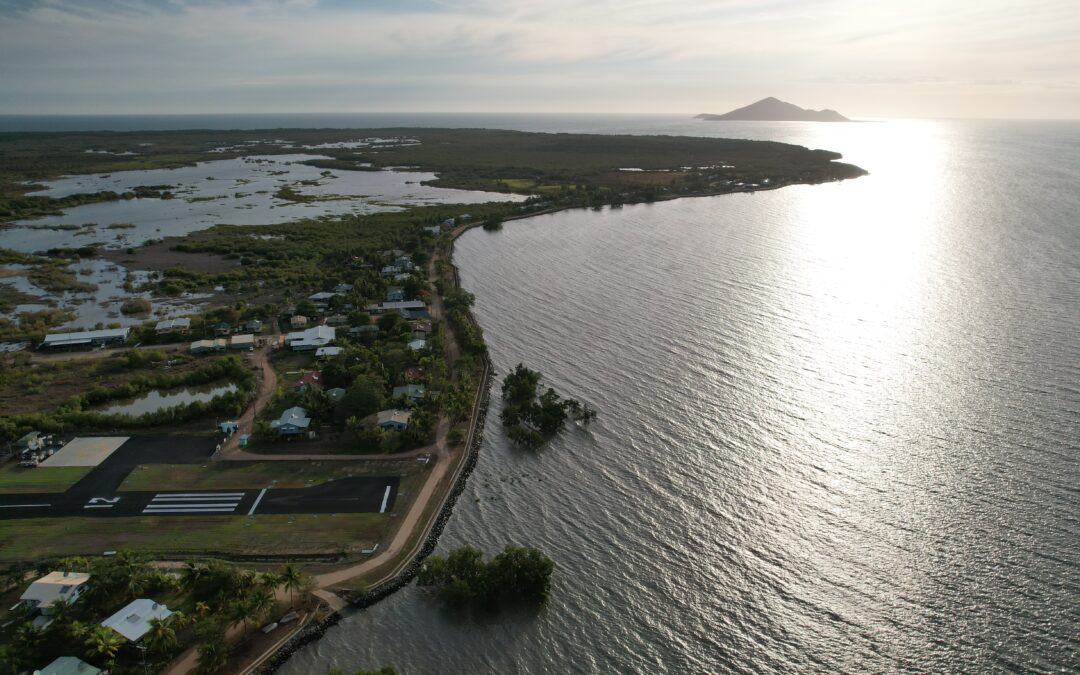Each year, over 10,000 first-year university students across Australia and New Zealand participate in the EWB Challenge. Students work in teams to develop a solution to challenges identified by EWB Australia’s community-based partners.
We are excited to announce that the First Nations context for the 2024 EWB Challenge will be delivered in collaboration with the Torres Strait Island Regional Council (TSIRC) with a focus on Saibai Island within the Torres Strait Islands. Student design ideas aim to support TSIRC staff with their work on the ground in Saibai Island.
Torres Strait context
Saibai Island is located in the top western group of islands in the Torres Strait, approximately 138 kms north of Horn Island and 4 kms south of the International Maritime border with Papua New Guinea. It is part of the Torres Strait Island Region and is approximately 800 kms north of mainland Australia. The island covers an area of around 42km² and is characterised by a flat topography with a mix of sandy beaches, mangrove forests, and lush vegetation.
Saibai is a flat mud mangrove island with the community established on a narrow strip of beachfront situated a few metres above sea level. The community is inundated several times a year by king tides overtopping a basic stone seawall that was constructed in the mid 1900’s, as well as a concrete seawall built in 2017.

Caption: Saibai Island seawall during low tide, high tide and king tide (from left to right).
One aspect of biosecurity in the Torres Strait involves restrictions on the movement of waste materials between the islands and mainland Australia. The primary reason for this restriction is to minimise the risk of introducing harmful pests, diseases, or contaminants that may be present in the waste into mainland Australia.
Waste management practices in the Torres Strait aim to ensure that waste generated in the region is treated appropriately, minimising the risk of contamination and the introduction of harmful substances to the mainland or other sensitive areas.
Currently, Saibai Island, like many other islands in the Torres Strait, faces challenges in waste management. Limited infrastructure and resources contribute to constraints in waste collection, disposal, and recycling on the island. With the increasing population and economic activities, the amount of waste being generated has also grown, putting pressure on existing waste management systems.
The community partner for this year’s First Nations context, TSIRC, plays a crucial role in the governance and administration of the region. Comprising 15 elected Councillors representing 15 wards, TSIRC is responsible for delivering a wide range of services and programs to the local communities, including infrastructure development, waste management, environmental conservation, and cultural preservation initiatives.
TSIRC is committed to upholding the rights and interests of the Torres Strait Islanders, including their traditional knowledge and customary practices. This commitment is evident in the council’s efforts to protect marine ecosystems, such as the implementation of sustainable fishing practices and the conservation of critical habitats for endangered species like the dugong, which holds significant cultural and economic value for the Islanders.
Scoping trip

Caption: EWB staff, Sai Rupa Dev and Josh Macleod speaking with Councillor Conwell Tabuai.
In December 2023, the EWB Challenge team travelled to Saibai Island to meet with representatives from TSIRC and local community members to progress the scoping process that feeds into the comprehensive design brief and supporting multimedia resources issued to our EWB Challenge students.
“One of the biggest challenges encountered during the scoping process was at the very start of our trip, when we were trying to get to the island safely amidst Cyclone Jasper. We didn’t know when or if we could arrive on the island until we were actually there. This initial hurdle put into perspective the remoteness of this part of Australia, as well as the logistical challenges associated with it. I can only presume that there would be similar challenges for contractors, health professionals, and other emergency services.
“Once we arrived at Saibai Island, it was marvellous to witness this amazing island right at the cusp of the international maritime boundary. Papua New Guinea is just 4 kms away and you can see it from the shore. Saibai is a tight knit community where everyone knows each other, and they welcomed us straight in. The most interesting thing I found on the island is that every house has a name derived from their clan of origin” – Sai Rupa Dev, EWB Challenge Series Lead.
Design considerations for students
When developing their designs for Saibai Island, students will need to take into consideration the solution’s sustainability, impact on community and environment, community engagement, cost and economic benefits, materials and access as well as delivery and ongoing management.
“Given the remoteness of the island, waste is a huge problem as it isn’t logistically feasible to transfer waste generated within the island elsewhere. I’m excited for students to take this challenge into consideration and incorporate circular design thinking into their projects.” – Sai Rupa Dev, EWB Challenge Series Lead.
Students participating in the 2023 EWB Challenge within the Torres Strait context will develop design proposals addressing one or more of the following themes:
- Waste management;
- Water and sanitation;
- Information and communication technology;
- Infrastructure;
- Energy;
- and climate change/disaster management.
Students will also have access to immersive virtual reality interactives captured using 360 degree cameras and drones developed by EWB. Students will need to consider the many challenges posed by climate change and the remoteness of the Torres Strait Islands when designing their proposals for Saibai Island, amongst other challenges.
The EWB Challenge is delivered as part of the EWB Challenge Series, EWB’s real-world curriculum-integrated university education programs. The 2024 EWB Challenge is delivered in partnership with the Torres Strait Island Regional Council.


